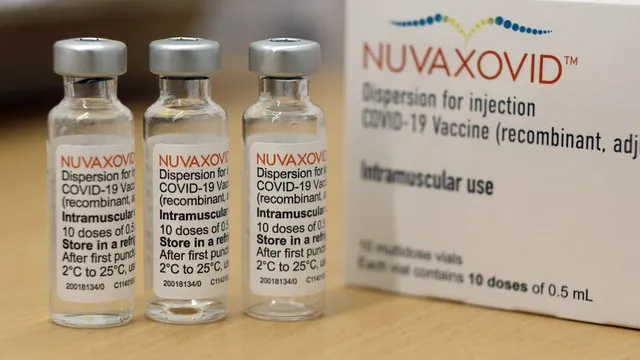
FDA vaccine official imposes new limits on COVID vaccine approvals
2025-07-03 09:34- Dr. Vinay Prasad imposed restrictions on COVID vaccine approvals for Novavax and Moderna, despite prior analyses by FDA scientists suggesting broader access.
- The decision to limit vaccine availability to specific high-risk groups reflects ongoing tensions within the FDA regarding vaccine safety and effectiveness.
- These actions raise concerns about the public health implications of restricting COVID vaccine access amid ongoing health threats posed by the virus.
Express your sentiment!
Insights
In recent developments at the Food and Drug Administration (FDA), Dr. Vinay Prasad, the agency's vaccine chief, intervened to limit the availability of COVID-19 vaccines developed by Novavax and Moderna. This action, taken months after the vaccines received approval in May, has stirred controversy as Prasad overruled internal scientists who recommended broad access to individuals aged 12 and older. Internal correspondence reveals that government scientists assessed the benefits of the vaccines against the risks of COVID-19 and found that the benefits outweighed the rare side effects. However, Prasad determined that these vaccines should only be available to high-risk populations, including senior citizens and those with preexisting health issues. This decision reflects ongoing tensions within the FDA, especially following the resignation of former director Dr. Peter Marks due to differing views on vaccination policies. The call for limiting approvals aligns with a broader trend of skepticism surrounding vaccine safety, particularly regarding new data on myocarditis, a rare heart inflammation condition linked to certain vaccines. As a significant public health threat, COVID-19 has continued to cause substantial mortality and morbidity across the United States. The implications of these new restrictions will likely affect how future vaccination campaigns are conducted, emphasizing the need for renewed guidelines targeting higher-risk individuals, primarily seniors and people with chronic health conditions. The agency's approach remains under scrutiny as public health experts continue to evaluate vaccination strategies and their associated risks. Recent statistics from the Centers for Disease Control and Prevention (CDC) indicate that COVID-19 has resulted in between 32,000 and 51,000 U.S. deaths and over 250,000 hospitalizations since the previous fall, underscoring the urgency of making judicious decisions regarding vaccine approvals and their accessibility. The FDA is also taking additional steps to ensure clarity around vaccine risks, as evidenced by the recent updates to warning labels for Moderna and Pfizer vaccines. These controversies highlight the tension between public health recommendations and regulatory decisions at the FDA, raising important questions about the balance of vaccine accessibility, safety, and public trust.
Contexts
The FDA vaccine approval process is a critical pathway through which vaccines are evaluated for safety and efficacy before they are made available to the public. Traditionally, this process involves several phases, including preclinical studies and three clinical trial phases, where the vaccine is tested on human participants to ascertain its safety, dosage, and effectiveness against targeted diseases. The findings from these trials are then submitted to the FDA for review. The rigor of this process is designed to ensure that any vaccine approved by the FDA meets the highest standards of safety and efficacy, protecting public health at large. In recent years, particularly in response to the COVID-19 pandemic, the FDA has made adjustments to its vaccine approval process to expedite the availability of vital vaccines. The introduction of Emergency Use Authorizations (EUAs) is one of the most significant changes, allowing for the rapid deployment of vaccines that meet certain criteria based on preliminary evidence, even before full approval. This mechanism proved pivotal in the swift development and distribution of COVID-19 vaccines, reflecting the FDA's adaptive approach in addressing urgent public health emergencies. Furthermore, the FDA has implemented more rigorous monitoring processes for vaccines that are granted EUAs, including post-marketing surveillance to track long-term effects and gather additional safety data. This ongoing scrutiny is essential as it helps mitigate potential risks and reassures the public about the integrity and reliability of vaccines. The FDA continues to collaborate with scientists, healthcare professionals, and the general public to refine its approaches, guiding how vaccines can best meet both immediate and long-term health needs. The changes in the FDA vaccine approval process highlight an important balance between urgency and safety. While public health emergencies necessitate rapid responses, the FDA remains committed to upholding its mission of ensuring that all vaccines are safe and effective. The lessons learned during the pandemic have also laid the groundwork for future vaccine development and approval processes, likely leading to continued innovation and improvement in how vaccines are evaluated and made available to the public.